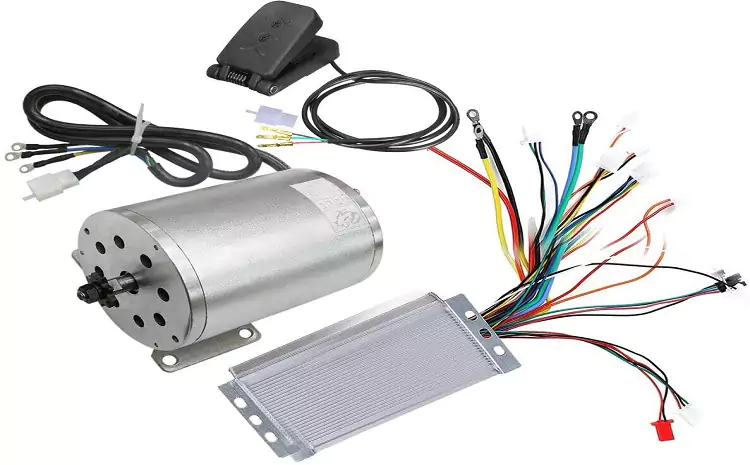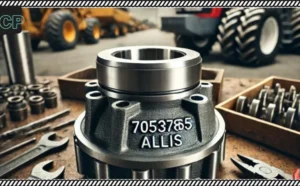Electric motors, especially hub motors, are commonly used in electric bikes, scooters, and other vehicles. If you’re curious about how much horsepower an 1800W hub motor generates, this article will break it down for you. Understanding the power output can help you choose the right motor for your needs.
Key Takeaways
- An 1800W hub motor produces around 2.41 horsepower (hp).
- Horsepower is calculated by dividing watts by 746 (1 hp = 746 watts).
- The motor’s performance also depends on factors like torque and riding conditions.
- Knowing your motor’s horsepower helps in determining its top speed and acceleration.
Understanding Horsepower and Watts
What Is Horsepower?
Horsepower (hp) is a unit of measurement used to express the power of engines and electric motors. It was initially used to compare the power of steam engines to the strength of horses.
What Are Watts?
Watts (W) measure electrical power. When it comes to electric motors, the wattage rating indicates how much electrical power the motor can use.
How to Convert Watts to Horsepower?
To find the horsepower of an electric motor, you can use the following formula:
[
\text{Horsepower (hp)} = \frac{\text{Watts (W)}}{746}
]
For an 1800W motor, the calculation would be:
[
\text{Horsepower} = \frac{1800}{746} \approx 2.41 \, \text{hp}
]
| Motor Wattage | Horsepower (hp) |
|---|---|
| 500W | 0.67 hp |
| 1000W | 1.34 hp |
| 1800W | 2.41 hp |
| 3000W | 4.02 hp |
Why Is Horsepower Important?
Knowing the horsepower of your hub motor helps in understanding its overall performance, including acceleration and top speed. A higher horsepower motor can achieve faster speeds and handle inclines better than a lower horsepower motor.
How Much Horsepower Does an 1800W Hub Motor Produce?
An 1800W hub motor produces approximately 2.41 horsepower (hp). This power output makes it suitable for mid-range electric vehicles like e-bikes and scooters.
Practical Use of a 2.41 HP Motor
A 2.41 hp motor provides sufficient power for electric bikes and scooters that need a balance of speed and torque. It can handle moderate hills and provide a smooth ride even on uneven terrains.
Factors Affecting Motor Performance
Several factors can affect the actual performance of an 1800W hub motor, including:
- Weight of the Vehicle: Heavier vehicles require more power to maintain the same speed.
- Riding Conditions: Uphill terrain and strong winds can reduce the motor’s efficiency.
- Battery Capacity: A higher-capacity battery can supply more consistent power, improving the motor’s performance.
| Factor | Impact on Performance |
|---|---|
| Vehicle Weight | Affects speed and acceleration |
| Terrain | Uphill and rough terrains lower performance |
| Battery Capacity | Consistent power supply increases efficiency |
Calculating Torque of an 1800W Hub Motor
In addition to horsepower, torque is another crucial aspect of a motor’s performance. Torque measures the rotational force and determines how well the motor can handle acceleration and inclines.
Formula for Torque
Torque can be calculated using the following formula:
[
\text{Torque (Nm)} = \frac{9.55 \times \text{Power (W)}}{\text{RPM}}
]
For an 1800W motor, if it operates at 500 RPM:
[
\text{Torque} = \frac{9.55 \times 1800}{500} = 34.38 \, \text{Nm}
]
This means the motor generates 34.38 Newton meters (Nm) of torque, making it suitable for applications that require moderate power and acceleration.
Conclusion
An 1800W hub motor offers a power output of around 2.41 horsepower, making it ideal for a range of electric vehicles like e-bikes and scooters. Understanding its horsepower and torque helps you choose the right motor for your riding needs. Make sure to consider factors like weight, terrain, and battery capacity to get the most out of your electric motor.
With this knowledge, you can confidently decide if an 1800W motor is the right fit for your next project or upgrade.









